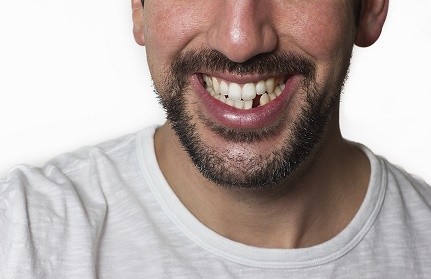A Beginners Guide to Dentures

With a smile being one of the first things you notice about people, missing a tooth can be very hard for a person to deal with. But at Holman Family Dentistry we strive to create the best experience and help you every step of the way. There are different types of dentures to fit all the needs you may have and specific ways to care for them.
Types of Dentures:
- Immediate: These are temporary for 6-8 months after the removal until a permanent denture option is put in place. In different instances if it’s one or multiple it can be placed in a retainer that you wear throughout the day and take out to eat or clean at night.
- Partial: They consist of replacement teeth attached to a metal or acrylic base, which is custom-made to fit around the remaining natural teeth. Partial dentures can be removable or fixed to better fit your smile.
- Complete: These are used when all natural teeth are missing in either the upper or lower arch, or both. Complete dentures consist of a full set of artificial teeth attached to an acrylic base that sits directly on the gums. They rely on suction or dental adhesives to stay in place.
How to Care For Dentures:
- Regular check ups: Routine dental check-ups are necessary to ensure the dentures fit properly and to address any potential issues such as sore spots or adjustments needed for a better fit. With the frequency of visits and pointing out issues early on make for a better result.
- Oral health: Maintaining good oral hygiene is crucial when wearing dentures. This includes regular cleanings following the guidelines given after the procedure. Plus proper care of the gums and remaining natural teeth with check ups, flossing, and mouthwash.
- Eating habits: It’s important to be mindful of the types of foods consumed. Initially, softer foods may be easier to eat, and sticky or hard foods should be avoided to prevent damage to the dentures. Some food and beverages to stay away from are extremely hot drinks, wait to let them cool before enjoying a cup of coffee. Hard and crunchy foods like peanut brittle or even chewing on ice.
- Storage: It’s essential to clean them thoroughly before storing them overnight. Use a denture brush and cleaner to clean all surfaces of the dentures. Store them in a denture soaking solution specifically designed for this purpose. These solutions help remove stains, bacteria, and plaque while keeping the dentures moist. They should typically be stored overnight to give the gums a chance to rest.
The Life Cycle for Dentures
Throughout the process of receiving dentures you will first experience the immediate temporary solution that lasts between 6-8 months before the permanent solution is ready. There is an adjustment period where your speech may be affected trying to get used to the new normal of wearing dentures. While in this stage it’s important to follow all the steps of caring for them correctly and staying away from foods and beverages that could damage them over time. Dentures last a long time ranging from 8-12 years when you take care of them well.
If you’re curious about what kind of dentures would suit you visit our page to discover all the possibilities.
